There are plenty of ways you can reduce your environmental footprint by making smart choices when it comes to your diet. Whether you have decided to be on some sort of plant based diet or not, another great option is to focus on local and seasonal foods. Local foods are often fresher, tastier, and more nutritious than their long-hauled counterparts. Plus, buying local helps to bolster your local economy and conserve energy used in transportation. Here’s a straightforward guide on ways to incorporate local foods into your daily meals.
Read More ➥Tag: diet
bookmark_borderHow to Support Vegans as a Non-Vegan
Hey earth muffins! The start of 2023 means it is the month long challenge of Veganuary. If you aren’t vegan, you can still participate in this challenge by supporting those who do follow plant-based diets. Or, maybe you can try to eat a few more plant-based meals each week! Keep reading for a full list of ways to support vegans as a non-vegan.
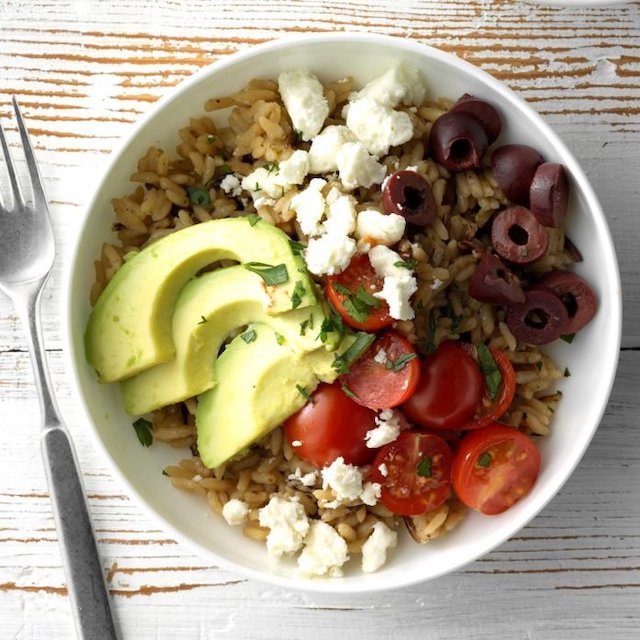
1. Be an advocate for plant-based diets
A great way to live a more eco-friendly lifestyle is to switch to some sort of plant-based diet. Even if you aren’t vegan (or think that the vegan diet is too strict), it is important to be an advocate for all types of sustainable diets. Let others know about alternative diet options and educate those around you on why these are a great way to be more eco-friendly.
Read More ➥bookmark_borderHow To Eat Seasonally (And Locally Too!)
Hey earth muffins! While subscribing to a plant-based diet is a great way to be more sustainable, you don’t have to give up meat to be more eco-friendly when it comes to food. Another great way to reduce your impact on the planet is to eat seasonally and/or locally! 😊 When you eat with the seasons, you are supporting local farming and reducing the demand for out of season produce. This reduces transportation impacts on the planet – and is better for your nutrition and cheaper too. Here’s how you can eat seasonally and locally!
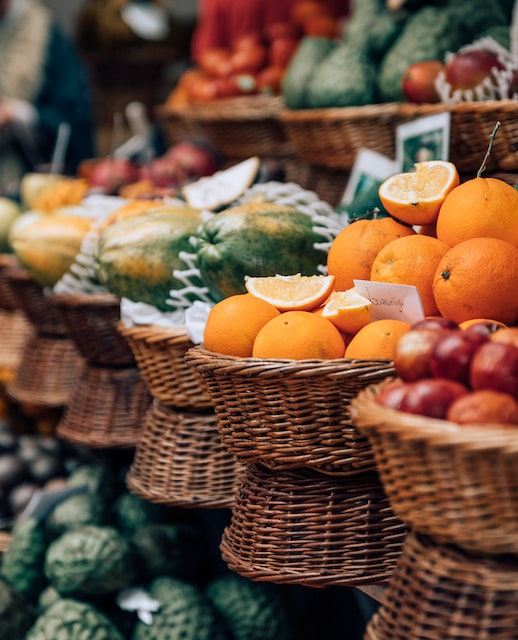
bookmark_border10 Tips on How To Start a Plant-Based Diet!
Hey earth muffins! January is here, which means Veganuary starts! What is Veganuary, you might ask? It is a month-long challenge to push yourself to try a plant-based diet. If you aren’t sure what I mean by “plant-based”, check out this full guide on the different plant-based diets. 😊 As a vegetarian, I love the idea of this challenge… But I also know that starting a plant-based diet can be overwhelming at first. To make it easier for any of you interested in participating in this challenge, here are my top 10 tips on how to start a plant-based diet this January. I adapted this list from the official Veganuary guide, so sign up to participate in the challenge to get even more helpful hints!

1. Focus on planning before you start!
Changing your diet is going to take some preparation. You can’t just decide that you are going to be vegan one day and expect to be successful. It is going to take some planning! I’m a huge fan of journaling, so I suggest writing out a plan for yourself. Make lists for the grocery store (bonus, this prevents food waste too!), ideas for meals, and set goals to help ease yourself in. If you have a plan before you start, you increase the likelihood that you will stick to your new plant-based diet!
Read More ➥bookmark_borderWhat is a “Plant-Based” Diet? & Other Amazing Diets Defined
Hey earth muffins! A couple of years into my eco journey, I decided to stop eating meat during Plastic Free July. When I first made this decision, I wanted to see how it would affect my body and make me feel. After the one year mark, it was obvious that this was going to stick. July 2021 is the two year milestone – crazy to think all of that time has gone by! There are plenty of reasons why you should consider giving up meat as well; but, diet is an individual choice. And, there are many different plant-based diets out there to consider! For today’s post, I wanted to define some of the most popular plant-based diet options. Let’s jump right into it! 🥕
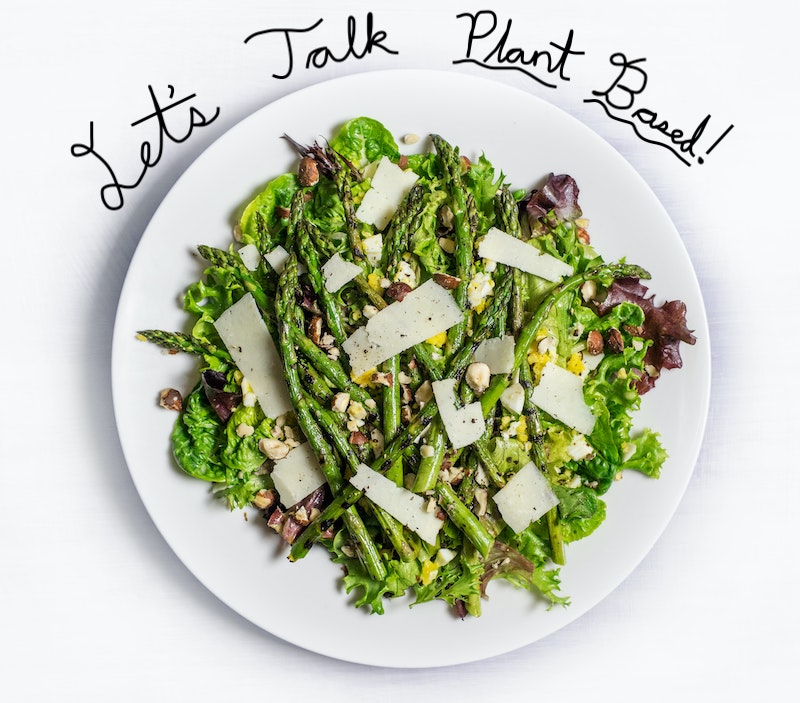
A “Plant-Based” Diet
Surprisingly, there isn’t really one encompassing definition for a “plant-based” diet! If you consider yourself someone who follows a plant-based diet, your meals contain much more plant derived foods than things from animals. The food you eat is often less processed and a “whole food” compared to other diets. I like to think of “plant-based” as an umbrella term that encompasses all of the following terms under it. 😊 It definitely is more inclusive because it includes a spectrum of people from hardcore vegans to omnivores.
Vegetarian
The dictionary defines a vegetarian as someone who “does not eat meat, and sometimes other animal products, especially for moral, religious, or health reasons”. Never fear – you can still get plenty of protein even without meat and fish; there are plenty of non-meat protein options! It seems like this diet is a popular option for reasons outside of helping the environment… But there is lots of evidence that refusing to eat meat helps the planet!
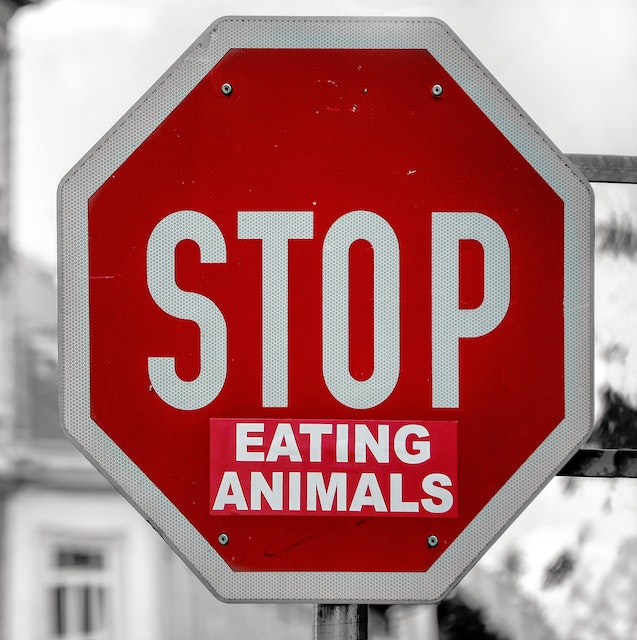
Pescatarian
While I have called myself a vegetarian for the past two years, I really should have been calling myself a “pescatarian”. If you consider yourself this plant-based diet, you allow yourself to still eat fish. I originally decided to become a pescatarian because I was worried that I wouldn’t be able to quit all meats right away. Now that I have two years under my belt, I am slowly moving towards being a full-time vegetarian. The Seaspiracy documentary on Netflix really inspired me to limit my fish consumption as much as possible. It is a great (but sad) documentary I recommend you all watch!
Flexitarian/”Omnivore”
If you are also concerned about giving up meat cold turkey (pun intended), this might be the plant-based diet for you! A flexitarian is someone who centers their diet around plant derived foods, but will occasionally include meat as well. Another term for this is a “semi-vegetarian diet”. The meat and fishing industries are absolutely terrible for the planet, so many eco warriers believe that the vegetarian/vegan diet is the only way to go. But, every small change helps! If you want to eat meat a couple days each week, the flexitarian option is a great way to reduce your meat consumption. 🐄
Vegan
Last but not least, the vegans! The strictest of the plant-based diets, a vegan abstains from consumption of any animal product. This includes things like eggs, milk, and even honey. Some vegans also take this past their diets and refuse animal products in everything from blankets to makeup products. While I haven’t considered a vegan diet yet, I’ve definitely had some delicious vegan food! It used to be much more difficult to be a vegan, but now there are many vegan options on the market. Definitely an awesome plant-based diet choice!
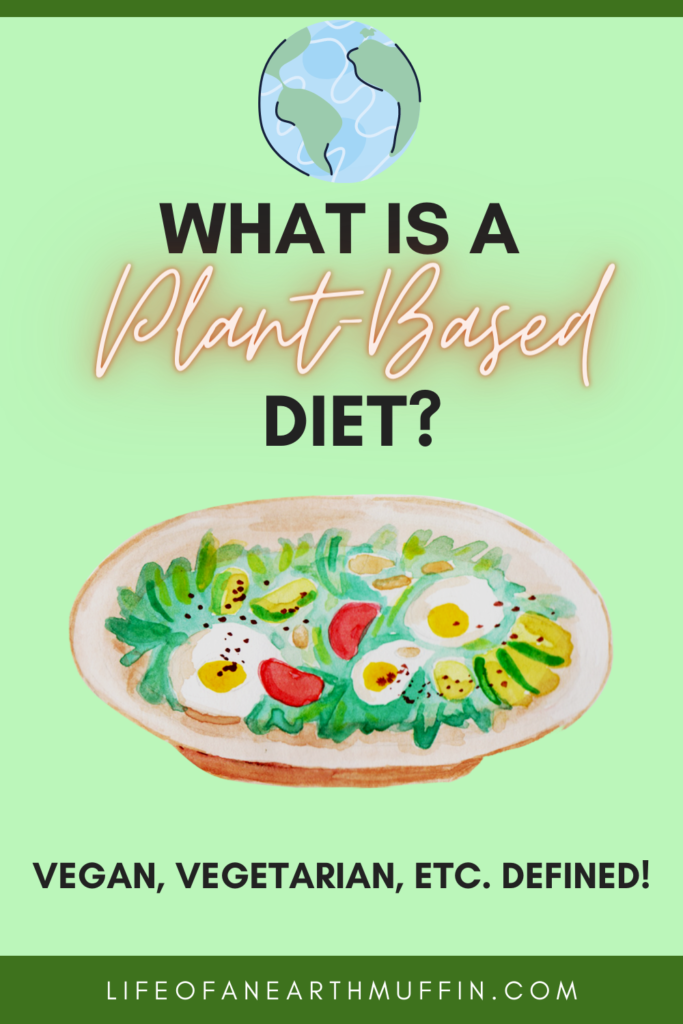
Final Thoughts on Plant-Based Diets
If you want to reduce your impact on the planet in a meaningful way, then a plant-based diet might be for you! Whether you decide to be an omnivore or go all in as a vegan, the way you eat is an individual choice. Do what makes your body feel the best! Just like with any major change, keep tabs on yourself and monitor how you feel. It is important to keep all of your key nutrients and vitamins at good levels through eating healthy and/or taking supplements. From my experience, I’ve loved being on a plant-based diet; there are many great recipes to try (see my favorites here!)! What are your thoughts on plant-based diets?
Love,
Jenna ♥
bookmark_borderHow to Live with Someone with a Different Diet!
Hey earth muffins! Over the summer I posted about how I have been a vegetarian for more than a year now. What you might not know is that my boyfriend eats meat – and a lot of meat at that! I am a vegetarian for my own reasons and he isn’t for his own…. So I thought it would be interesting to share some of my best practices for living with someone who follows a different diet! This is similar to my post about how to live with someone who isn’t as eco-friendly; if you like this style/format, let me know and I will continue to write posts like this! 😊
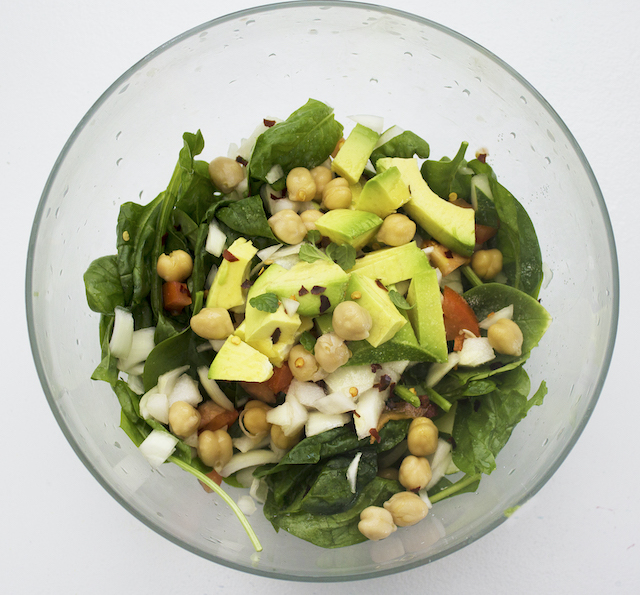
Tips for Cooking with Different Diets
For my boyfriend and I, we talked about how we were going to cook when we moved in together this summer. I thought it was important for us to not cook two totally different meals every night. We thought it would be better for our relationship to cook one meal that we can enjoy together…. And that has worked out just fine so far! This is definitely a personal preference for us. If you are a vegetarian/vegan and your partner isn’t, there is nothing stopping you from both cooking something and then eating it at the same time! 🍴
I think the best tip I can give is to make recipes and then add the protein as the last step. If we are making spaghetti, we first cook the sauce and noodles. We then portion it in half and he adds his cooked ground beef and I’ll add tofu crumbles/another non-meat protein. Super easy! 😋 The same goes for things like fried rice or stir fry: make the base, split into two pans, add the protein. My boyfriend has also been blessed (or cursed?) with a bunch of food allergies, so this is also a great method if I want to add something into my dish that he is allergic to.
If you don’t want to split your dinner into two dishes, you can also easily make things where a different protein is added as you cook. Examples of some of our favorites include tacos, quesadillas, sandwiches, and sheet pan dinners (where we put veggies, meat, and tofu/non-meat protein together!). This can help with making sure the different proteins are ready at the same time, which I will talk about next.
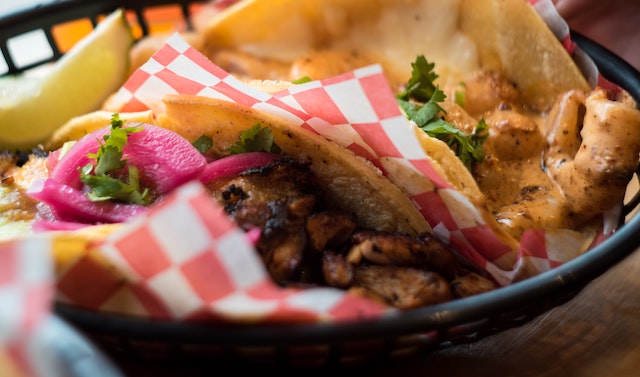
Because you aren’t eating the same protein, it is important to know how long it will take them to cook. You wouldn’t want one meal to be done 10 minutes before the other. That defeats the purpose of trying to eat together! 😅 I used to eat meat which has helped us, as I didn’t have to learn how long it takes to cook meats. To speed up the cooking process, we will often use an airfry to assist with cooking the proteins. I never thought I would use an airfry as much as we do in the kitchen; I’d highly recommend checking one out (affiliate link)!
Other Tips for Having a Different Diet
Just because you have a different diet doesn’t mean you can’t eat the same recipe! While yes, for my situation, my boyfriend is the only one who can shift to eating my food, but who says you can’t find recipes with totally different forms of protein! We both love mac n’ cheese, which easily accomodates both of us. I make homemade pierogis which, again, fits both of our diets. I have also been experimenting with new recipes this year that I have never tried before, like potato tacos! 🥔 It’s time to get creative in the kitchen y’all!
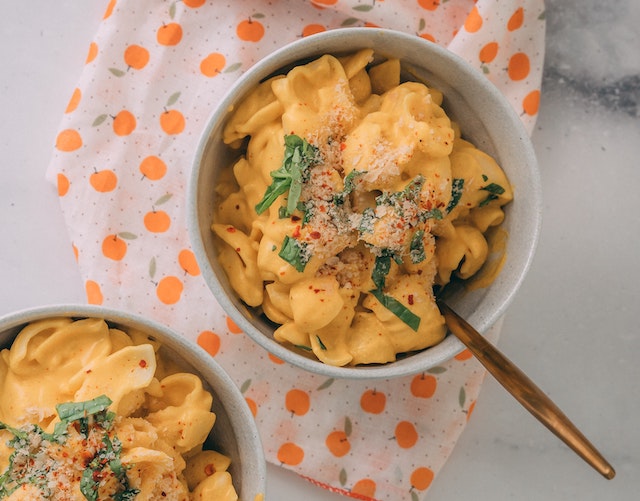
After you have cooked your meal, just be prepared for slightly more dishes to clean! We usually just have one extra pan than if we had eaten the same food. Our apartment has a dishwasher; this makes an extra dish no problem because everything just gets put into there. If you don’t have a dishwasher, make sure you use as little water as possible when handwashing! 🙃 It is definitely more sustainable to run a dishwasher than handwash.
Lastly, it is important to discuss your grocery shopping. Some forms of protein are naturally more expensive than others. It is important to talk about what your budget(s) are for food and then stick to them! Overall, it was an adjustment for my boyfriend and I to accomodate both of our (very different) diets. But, we have made it work with these different diet tips – I know you can too! 😍
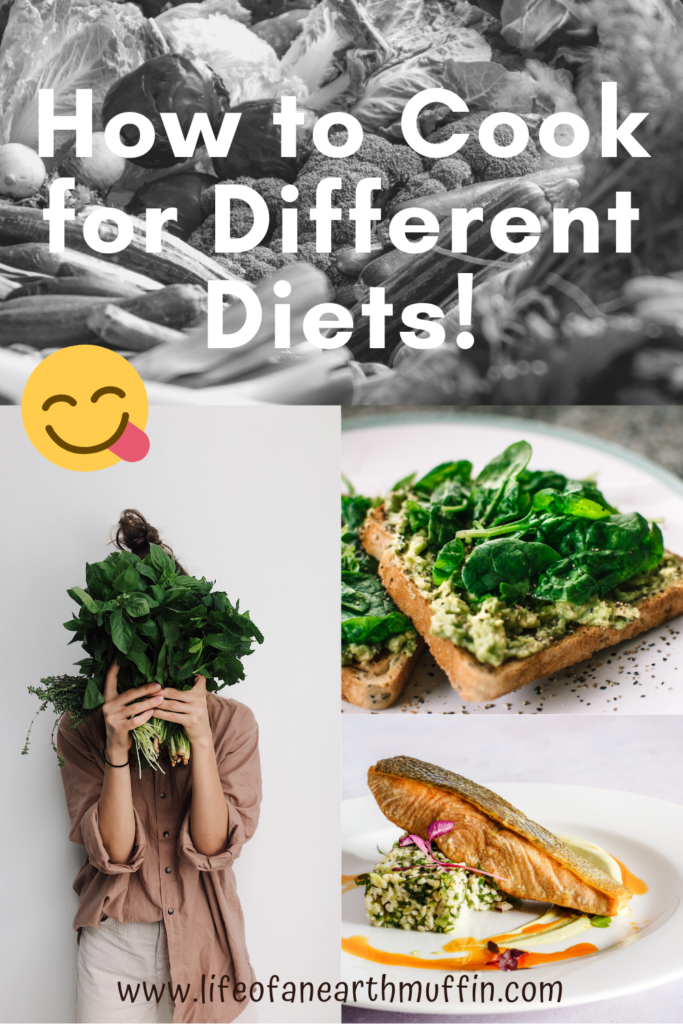
Love,
Jenna ♥
bookmark_borderMy Thoughts on Being Vegetarian for 1 Year!
Hey earth muffins! I hope everyone had an amazing weekend – I am now 75% done with my CPA tests. 🎉 I took my third exam yesterday; my boyfriend and I also got the keys to our new apartment! I will officially be moving all my stuff on the 25th, so I still have a lot of packing to do. If you have been following Life of an Earth Muffin for some time, you might know that I started a meat-less diet last July… It has now been a whole year being vegetarian, so I thought I should write a post about it. So let’s jump right in!
Why Did I Go Vegetarian?
For starters, it is no surprise that refusing to eat meat is way more sustainable. The meat industry has an enormous negative impact on the planet, so I figured I shouldn’t continue to support something I don’t agree with. I also definitely do not agree with the terrible treatment of the animals raised to be slaughtered; my boyfriend and I came across a chicken farm last summer and it absolutely scarred me. 😣 It was so sad to see the animals like that. I also wanted to see if eating a plant based diet would improve my health and the appearance of my skin. I am blessed to be healthy overall, but my skin will often flare up with hormones and stress. So, I wanted to see if being a vegetarian would help with that!
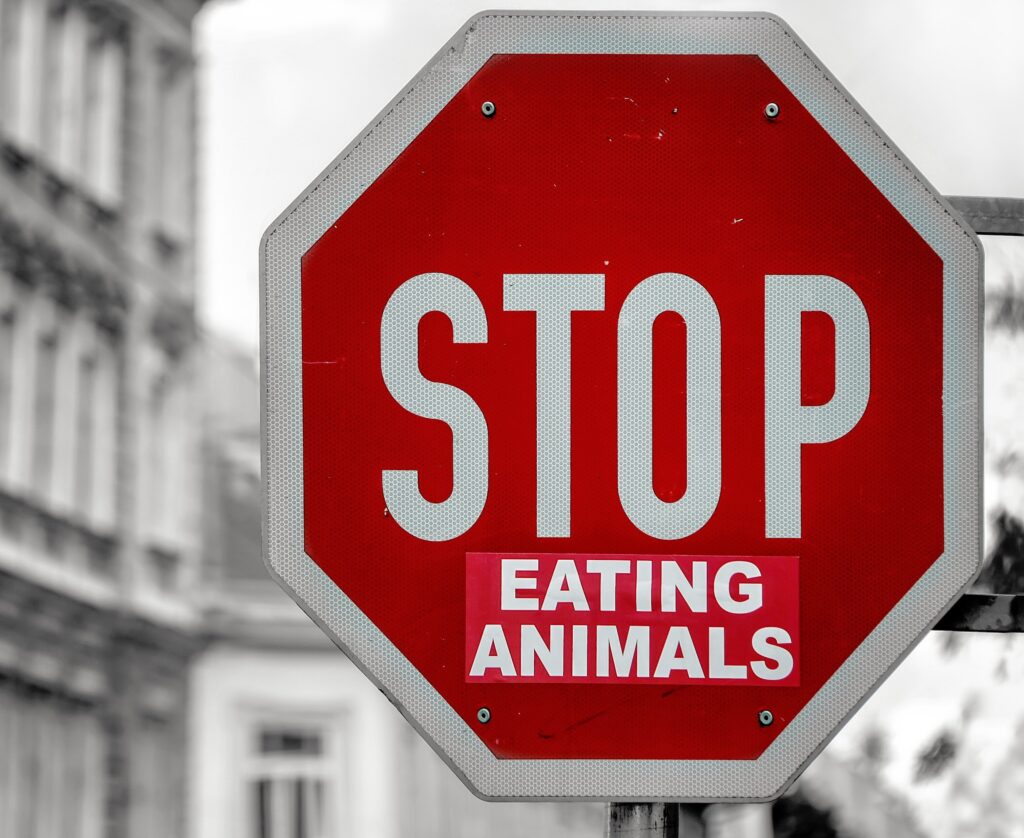
It is also important to note that I should really be saying I was a “pescatarian” for this past year, as I did eat seafood. I have had the problem of being underweight my whole life, so I didn’t want my body to take a huge hit by going off many sources of protein. But, now that my body is adjusted to alternative sources of protein, I may try to stop eating seafood as well (as fishing also poses a huge sustainable issue!). 😊
What Have I Noticed Being Vegetarian?
1. My grocery bill got smaller. As I mentioned in my grad student budget post, I averaged about $53 for groceries each month. It should be noted that I didn’t really try out many “meatless”/vegetarian “meat” products, which would probably cost a lot more. But, I still think being a vegetarian has saved me money this year!
2. My body feels great! It never necessarily felt bad when I was eating meat, but I feel like I am more lean and healthy now. While I do get a bit more gassy than I used to (thanks to eating a lot more beans haha), I have never felt better! On the flip side, I didn’t really see any difference in my skin. This wasn’t a huge shock, but it is nice to know that it really is just hormones and stress that break me out. 🤷♀️
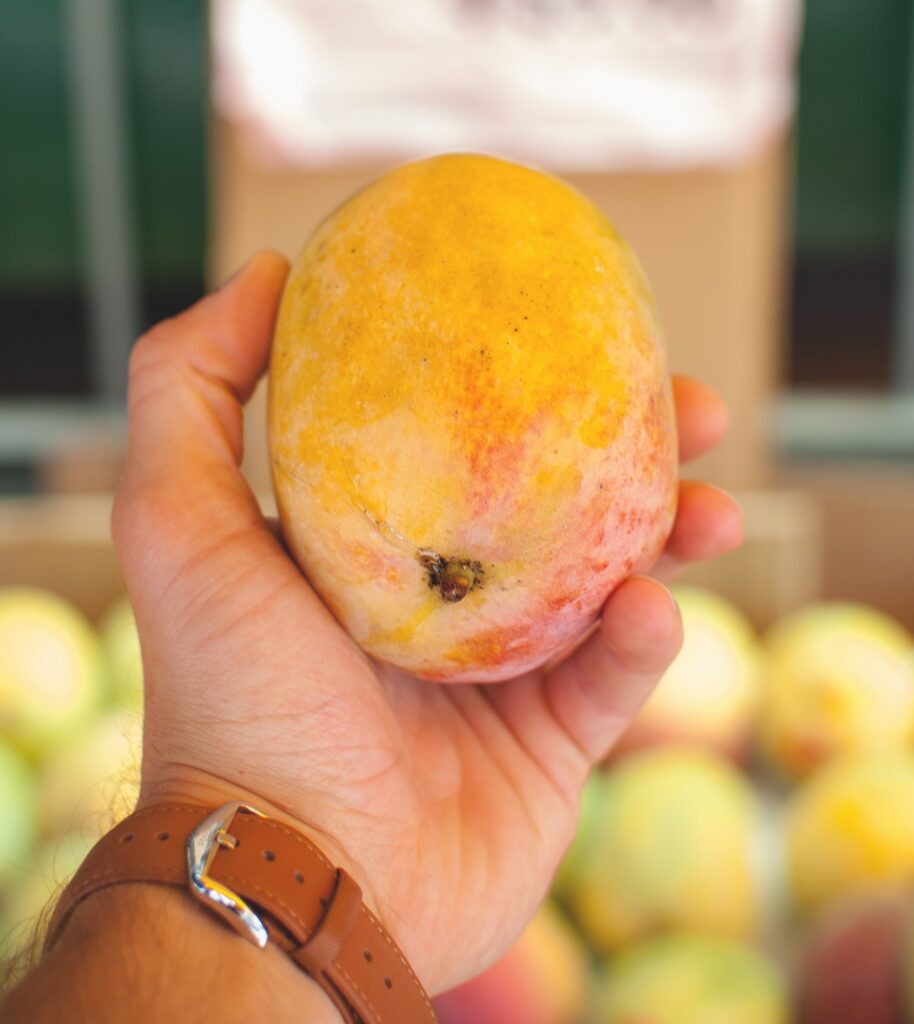
3. People judge you and often act like it is super hard to cater to a vegetarian. While I was lucky my roommate was also a vegetarian and my family was (decently) okay with it, other people like to judge. “I don’t know what to cook for you” is a common thread I heard… But it isn’t actually a big deal to cook for someone who doesn’t eat meat. Just make what you were going to make and they will avoid what they can’t eat!
What Were Some Benefits?
1. I definitely tried more new recipes being vegetarian. I have always shopped once a week to ensure my fridge is stocked with fresh, whole foods. But, incorporating new vegetables, sources of protein, etc. this year allowed me to try some awesome recipes! I absolutely love to cook and am excited to continue exploring in my new, larger kitchen!
2. I learned what restaurants are veggie friendly. Some restaurants have great veggie options; others do not. It was fun going to my favorite establishments to see if they have good meatless options… Even some fast food establishments like Taco Bell have a whole vegetarian section of their menu! While fast food isn’t the most sustainable options, there are ways to reduce your waste. But, sit down restaurants are much better in terms of sustainability; they often have many more veggie options as well!
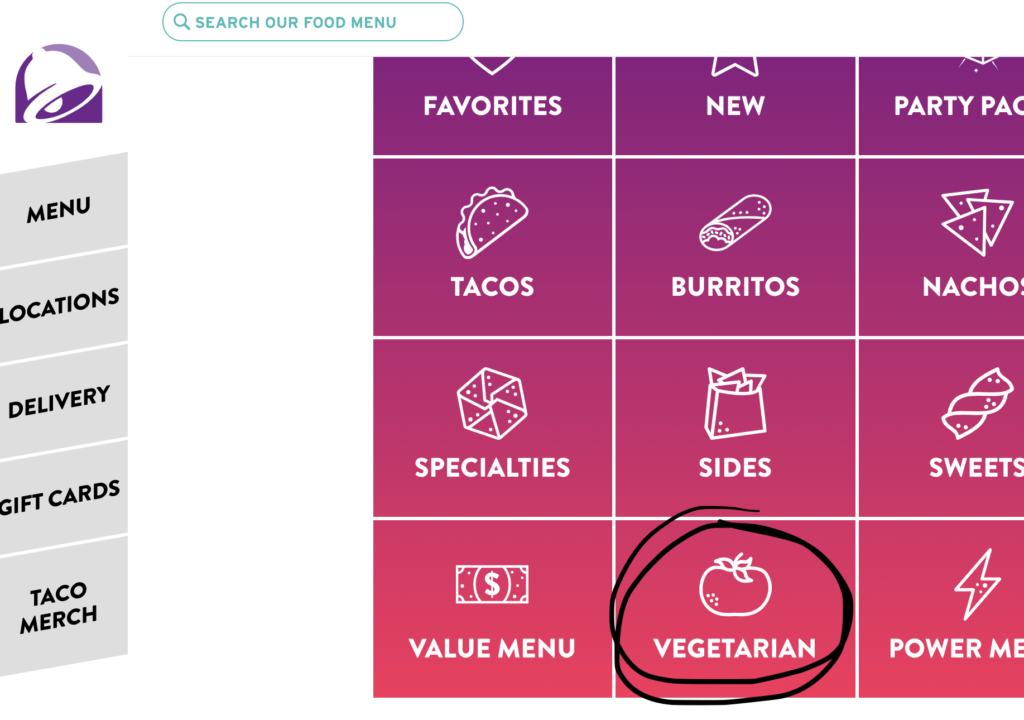
Should You Consider Being Vegetarian?
I will 10000% be staying a vegetarian. It wasn’t as challenging as I thought it was going to be. And, I have loved the benefits I have seen so far. If you have ever been interested in becoming a vegetarian, the best time to try is NOW! 😍 By not eating meat on one day each week you can reduce your impact; try for a meatless Monday! It is such a great way to reduce your impact on the planet. What are your thoughts on being a vegetarian?
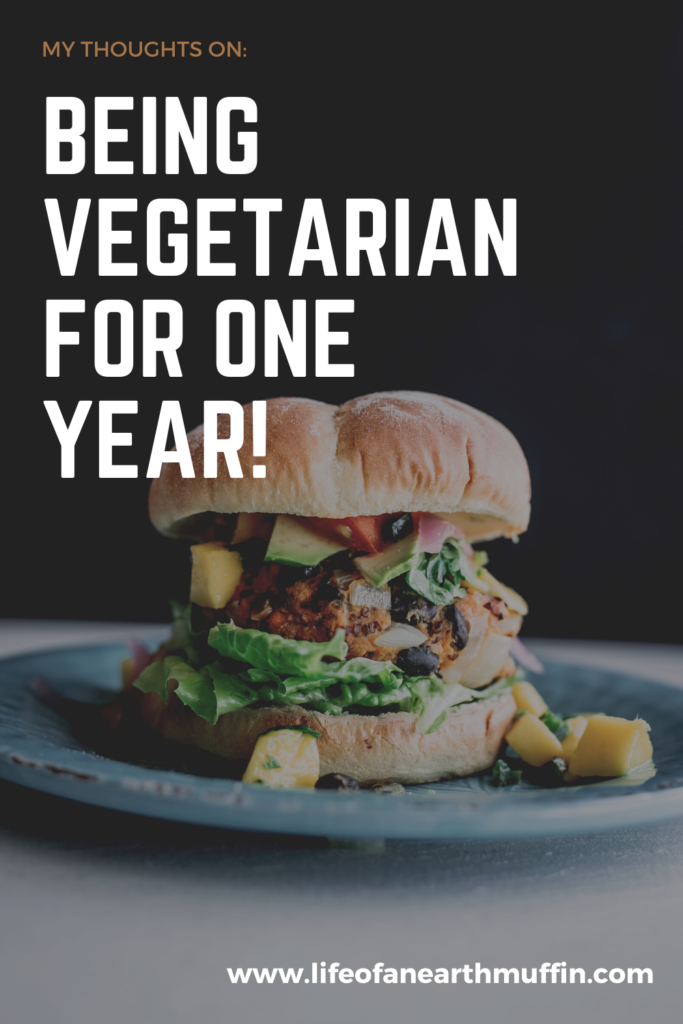
Love,
Jenna ♥

